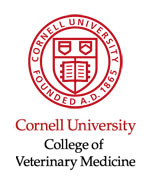|
"Beyond Fences: Policy Options for Biodiversity, Livelihoods & Transboundary
Animal Disease Management in Southern Africa" – recorded
June 18, 2014
United States Agency for International Development (USAID) Agrilinks
Feed the Future Seminar
QED Large Conference Room
1250 Eye St NW Suite 1100
Washington, DC 20005
http://agrilinks.org/events/beyond-fences-policy-options-biodiversity-livelihoods-transboundary-animal-disease-management
Presenter:
– Steve Osofsky, Executive Director, Wildlife Health & Health
Policy; Coordinator, Animal & Human Health for the Environment
And Development (AHEAD), Wildlife Conservation Society (WCS)
Event Abstract:
A key economic driver behind southern African transfrontier
conservation areas (TFCAs) is nature-based tourism that seeks
to maximize returns from marginal lands in a sector where southern
Africa enjoys a global comparative advantage. However, the management
of wildlife and livestock diseases (including zoonoses) within
the envisaged larger transboundary landscapes remains unresolved
and is an emerging policy issue of major concern to livestock
production, associated access to export markets, and other sectors
in the region—including public health. Now that Southern
African Development Community (SADC) countries have chosen to
pursue transfrontier conservation initiatives in the interest
of regional risk-diversification of land-use options and livelihood
opportunities in the face of climate change and ongoing challenges
to food security, a new policy paradigm is needed to help resolve
the incompatibility between (a) current regulatory approaches
for the control of diseases of agro-economic importance, and
(b) the vision of vast conservation landscapes without major
fences.
"Beyond Fences: Policy Options for Biodiversity, Livelihoods
and Transboundary Disease Management in Southern Africa” –
recorded January 27, 2010
International Conservation Caucus Foundation, Congressional
Staff Lunch Briefing
Washington, DC
Video
Presenter:
– Steve Osofsky, Director, Wildlife Health Policy, Wildlife
Conservation Society (WCS); Coordinator, Animal & Human Health
for the Environment And Development (AHEAD) Initiative, WCS
"Human, Animal, and Ecosystem Health" – recorded
May 21, 2008
Woodrow Wilson International Center for Scholars
Environmental Change and Security Program
1300 Pennsylvania Ave., NW
Washington, DC 20004-3027
http://www.wilsoncenter.org/index.cfm?topic_id=1413&fuseaction=topics.event_summary&event_id=405194
Presenters:
– Steve Osofsky, Senior Policy Advisor, Wildlife Health, Wildlife Conservation
Society (WCS); Coordinator, Animal Health for the Environment And Development
(AHEAD) Initiative, WCS
– Gladys Kalema-Zikusoka, Founder and CEO, Conservation Through Public
Health, Uganda
– Deana Clifford, Associate Wildlife Veterinarian, Wildlife Health Center,
University of California, Davis; Project Coordinator, Health for Animals and
Livelihood Improvement (HALI) Project, Tanzania
Event Abstract:
Human-animal interactions have important consequences for both
human and animal health, as well as for the health of the environment
we all share. These connections are increasingly relevant as
climate change facilitates expansion of disease vectors and as
population growth means humans and animals increasingly share
the same habitat. One strategy for confronting these challenges,
the “One Health” approach, focuses on catalyzing
problem-solving in places where tensions and challenges at the
interface between animal (wildlife and domestic) and human health
are often greatest. Conflicts between livestock and natural resources,
for example, must be dealt with to ensure peaceful coexistence
between the domestic animals and wildlife upon which so many
people’s livelihoods depend.
If local people who depend on keeping livestock for their livelihoods
view expanding contact with wildlife as a threat to the health
of their animals, or even to their own health, it is difficult
to build strong local constituencies for conservation, something
the last several decades have taught us is necessary for sustained
success. Addressing human health concerns in the context of conservation
work should not, therefore, be seen as diminishing the importance
of critical conservation issues, but rather as reinforcing the
value of maintaining biodiversity and the importance of respecting
wildlife and wild places. Done thoughtfully, linking human health
with wildlife and environmental health can make conservation
relevant to a much broader constituency.
Steve Osofsky, Senior Policy Advisor, Wildlife Health at the
Wildlife Conservation Society (WCS) and Coordinator of the Animal
Health for the Environment And Development (AHEAD) initiative,
will discuss the field and policy work of the AHEAD program.
Gladys Kalema-Zikusoka, the founder and CEO of Conservation Through
Public Health (CTPH), Uganda, and Deana Clifford, an associate
wildlife veterinarian at the Wildlife Health Center, University
of California, Davis and the Project Coordinator for the
Health for Animals and Livelihood Improvement (HALI) project
in Tanzania, will share how they apply this foundation to the
programs they manage, which address elements of human, animal,
and environmental health. |











